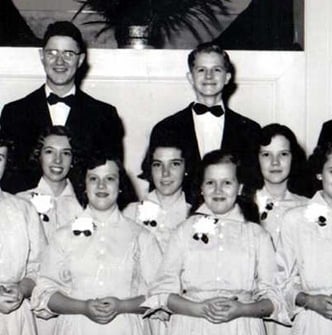 So just how do you define an evangelical? Do you go with David Bebbington’s four-fold breakdown: Bible, Cross, Conversion and Active Christian living?
So just how do you define an evangelical? Do you go with David Bebbington’s four-fold breakdown: Bible, Cross, Conversion and Active Christian living?
Steve Wilkens and Don Thorsen, both profs at Azusa Pacific, have a new book that takes on misperceptions of evangelicals. I like the title: Everything You Know about Evangelicals Is Wrong (Well, Almost Everything): An Insider’s Look at Myths and Realities
.
.
While appreciating Bebbington’s focus on the central beliefs, including belief in being behavioral, Wilkens and Thorsen propose a slight variation that is working its way into my own understanding. They see evangelicalism as committed to three things:
Orthodoxy (right belief),
Orthopraxy (right behavior), and
Orthopathy (right experience).
Overall, if these are the three characteristics, which is the most important to the evangelicals you know and what would be your ordering of the three?
Here’s my own ordering:
1. Orthopathy
2. Orthodoxy
3. Orthopraxy
That is, I believe the single-most important dimension of evangelicals, the single-most important element that grants credibility to a person’s genuineness, is a born-again experience or a testimony to a conversion experience. Evangelicals can talk all they want about what they believe, and they talk and write about this a good deal — and I count myself in that group, but when it comes down to it, you’re “in” if you’ve had the experience and you’re under suspicion (and “out”) if you haven’t, no matter what you believe. And how a practice behaves is the least important. And I won’t tread now into what evangelicals believe and how they think… that’s for another day.
That’s where I stand. What do you think?
As you know, I post on books that I’m either sent or that I buy. (I was sent this one; well, I blurbed the thing so I should have received a copy.) The reason the blog is focusing right now on evangelicalism is because that’s the books that are on my desk of late.

